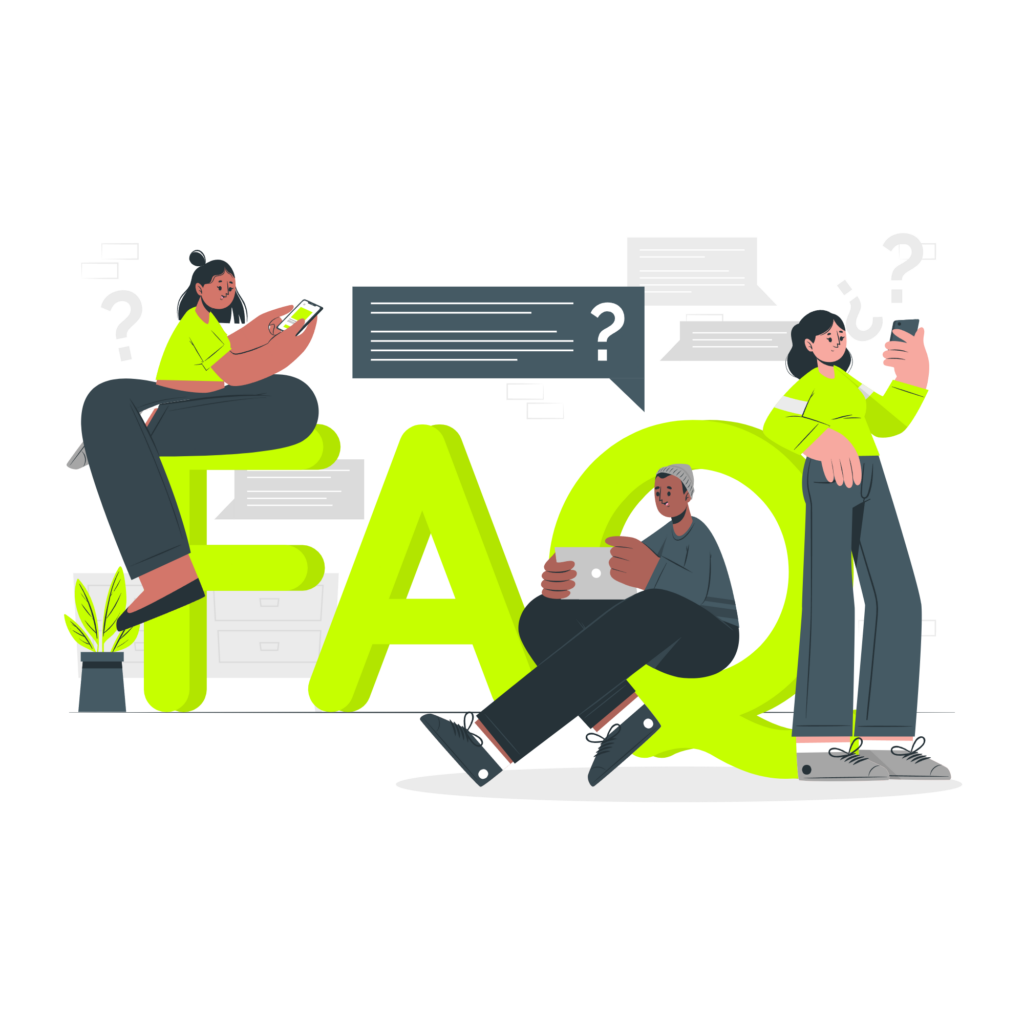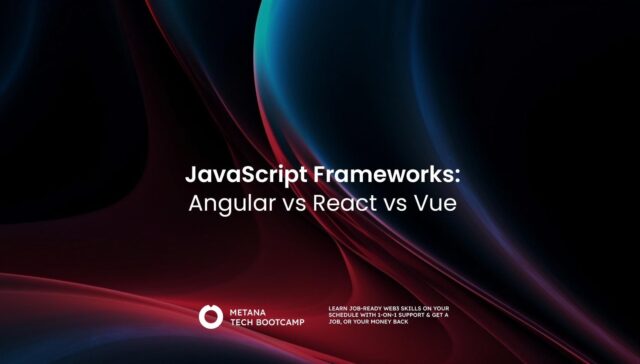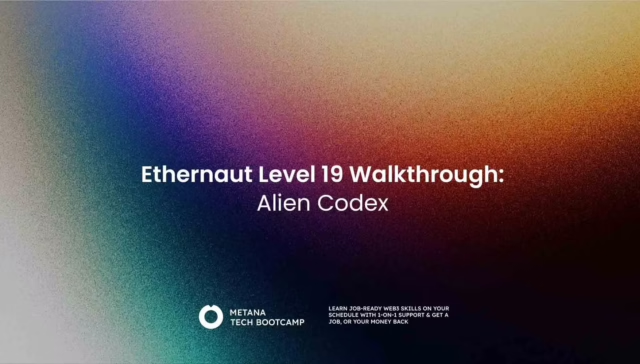An oracle in blockchain is like a helper that lets a blockchain network connect with other data sources or systems. It’s like a bridge between the blockchain and the outside world. Oracles let smart contracts and decentralized applications (dApps) to use and react to data from the real world.
So, Why are These Oracles Important?
They’re important because they let smart contracts and dApps make decisions based on real-world data. Oracles let the blockchain access information like market prices, weather conditions, or data from Internet of Things (IoT) sensors. They make blockchain applications more useful by letting them interact with the wider world. This means we can do even more things on a blockchain.

Types of Blockchain Oracles:
There are several types of blockchain oracles, including:
- Software Oracles: These oracles use software to connect with digital sources of information, such as APIs, web scraping, or data feeds. They retrieve data from these sources and provide it to the blockchain network.
- Hardware Oracles: Hardware oracles are physical devices that collect and transmit data from the real world to the blockchain. They can be sensors, IoT devices, or other hardware components that capture and relay data.
- Inbound Oracles: Inbound oracles bring external data into the blockchain network. They retrieve data from off-chain sources and provide it to smart contracts or dApps on the blockchain.
- Outbound Oracles: Outbound oracles allow smart contracts or dApps to send commands or trigger actions in external systems or devices. They enable the blockchain to interact with off-chain systems, such as making payments or controlling IoT devices.
- Cross-Chain Oracles: Cross-chain oracles facilitate the exchange of information and assets between different blockchains. They enable interoperability and communication between separate blockchain networks.
- Compute-Enabled Oracles: Compute-enabled oracles focus on relaying complex off-chain computations to trigger various functions on-chain. They handle computations that are too complex to be performed directly on the blockchain.
How Does Oracle Blockchain Work?
Blockchain oracles serve as the vital link that connects the on-chain world of blockchain and smart contracts with the off-chain real world. Oracles provide essential data inputs to trigger smart contract executions or validate conditions within a smart contract.
How Oracles Work with Smart Contracts
Here’s a step-by-step breakdown of how oracles function in conjunction with smart contracts:

- Data Request: A smart contract is programmed to initiate a data request. This request could stem from a preset condition or an event in the smart contract’s operation that requires external data.
- Data Retrieval: Next, the oracle fetches the requested data from the specified external source(s). The source could be an online API, a data feed, a server, or even another blockchain.
- Data Verification (for Decentralized Oracles): If the oracle is decentralized, it doesn’t just retrieve data from a single source. Instead, it fetches the same piece of data from multiple sources and validates the data by achieving consensus between these sources. This step significantly enhances the credibility and authenticity of the data.
- Data Transmission: Once the data is fetched (and verified in the case of decentralized oracles), the oracle pushes this data onto the blockchain.
- Smart Contract Execution: Now, the smart contract integrates this data as an input to its execution logic. If the data meets the predefined conditional statements in the contract, it triggers the contract, which automatically executes the encoded operation.
Real-World Examples of Oracle Usage
- Insurance Claims: In the case of decentralized flight insurance, for instance, an oracle fetches flight status data from airline databases or aviation authorities. If a flight is delayed or cancelled, the oracle feeds this data to the smart contract, which automatically triggers a payout to the insured party.
- Decentralized Finance (DeFi): In DeFi applications, oracles relay real-time price information of cryptocurrencies from various exchanges to smart contracts. This data is critical to maintain the operation of lending platforms, stablecoins, and derivatives on the blockchain.
- Supply Chain: In a blockchain-based supply chain system, IoT sensors act as oracles to provide real-time data about the location, temperature, and other conditions of goods. This data can trigger smart contracts at various stages in the supply chain, ensuring transparency and automating actions based on predefined conditions.
Blockchain oracles, therefore, play a pivotal role in extending the functionality and utility of smart contracts, enabling them to interact with real-world data and ensuring their autonomous operation.
The Oracle Problem
Inside the decentralized world of blockchain, oracles stand out because they’re not usually decentralized. Blockchains are decentralized, but most oracles are not. They use one main source for information. This creates a trust issue that goes against the decentralized nature of blockchain. We call this the ‘oracle problem’.
The main problem with oracles is that we have to trust them. They use external, often centralized, data sources. This makes oracles a potential weak point in the security of a blockchain network.
If an oracle is hacked or if the data it uses is wrong, it can give bad information to the smart contract. This can lead to things going wrong. This problem is even bigger when the smart contract involves a lot of money. Wrong data can lead to big financial losses.
Ongoing Solutions and Research

Addressing this problem is an active area of research, with several potential solutions proposed and being tested:
- Multiple Oracles: Using multiple oracles to fetch the same data can ensure more reliability. The idea is to build a consensus from data fetched by multiple oracles instead of relying on a single source of truth.
- Decentralized Oracles: Decentralized oracles aim to use the power of blockchain to distribute the task of data verification among various nodes or data sources, removing the need for a single trusted oracle.
- Prediction Markets: Prediction markets like Augur allow users to bet on real-world events’ outcomes, effectively crowdsourcing the oracle’s job and distributing the trust requirement.
- On-chain Data Verification: Some solutions propose the use of on-chain data verification. Such methods involve comparing the fetched data against other on-chain parameters or data points to verify its accuracy.
- Staked Oracles: Oracles can be required to stake or deposit a certain amount of cryptocurrency as collateral. If they deliver incorrect information, they risk losing their stake.
The oracle problem is a critical hurdle to be overcome in broadening the functionality, security, and decentralization of blockchain networks. With ongoing research and the development of new solutions, the blockchain community is actively exploring ways to solve this problem and enhance the trustless nature of blockchain technology.
Oracle Blockchain as a Service (BaaS)
Oracle Corporation, a multinational computer technology corporation, offers a specialized service called Blockchain as a Service (BaaS). This service is part of Oracle’s comprehensive Cloud Platform, designed to help customers and developers build, deploy, and manage blockchain networks and applications.
Key Features and Benefits of Oracle BaaS
Oracle BaaS provides a multitude of features, making it a robust and versatile platform for organizations looking to implement blockchain technology. Here are some key features and their benefits:
- Pre-assembled Platform: Oracle BaaS provides a pre-assembled platform with integrated infrastructure, which simplifies the process of setting up and managing blockchain networks.
- Interoperability: It supports interoperability with non-blockchain applications and allows for the integration of blockchain applications with existing systems via REST APIs.
- Scalability and High Performance: Oracle BaaS offers enterprise-grade capabilities, including high transaction rates and fast processing times, to support scalable, production-ready workloads.
- Enhanced Security: It provides a secure and resilient environment with comprehensive data protection, identity management, and strong encryption.
- Managed Service: As a fully managed service, it allows businesses to focus on building blockchain applications, leaving the management of network infrastructure to Oracle.
Use Cases and Examples of Businesses Using Oracle BaaS
Businesses across various industries are harnessing the capabilities of Oracle BaaS. Here are some notable examples:
- CargoSmart Limited: A global shipping and logistics company, CargoSmart, is using Oracle BaaS to transform the complex processes in the shipping industry. By utilizing blockchain, CargoSmart has improved cross-border networks, enhancing efficiency and transparency.
- Circulor: Circulor utilizes Oracle BaaS to track the ethical sourcing of raw materials. With Oracle’s blockchain, Circulor can verify the legitimacy of raw materials, ensure ethical sourcing, and track the carbon emissions within their supply chain.
- Certisign: A leading provider of digital certificate services in Brazil, Certisign, used Oracle BaaS to create a blockchain-based notary service. This service provides an immutable record of transactions, enhancing trust and reducing the risk of fraud.
Oracle Blockchain as a Service is a powerful tool enabling businesses to streamline operations, improve transparency, and innovate with blockchain technology seamlessly. It’s a testament to the growing potential of blockchain technology in transforming various industry sectors.
Conclusion: What is an Oracle in Blockchain?
From understanding blockchain oracles and their role to examining the ‘oracle problem’ and exploring solutions, we’ve delved into the integral aspects of oracles in the blockchain universe. We’ve also explored Oracle’s Blockchain as a Service (BaaS), its features, benefits, and real-world applications.
Blockchain oracles are essential intermediaries that connect the blockchain with the real world, making them indispensable for executing smart contracts based on real-world events. However, the ‘oracle problem’ highlights the need for security and trust in these data providers, an issue that is being actively addressed through multiple solutions like multiple oracles, decentralized oracles, prediction markets, on-chain data verification, and staked oracles.
Oracle’s BaaS provides a robust and comprehensive platform for organizations to leverage blockchain technology’s capabilities. From offering features like interoperability and scalability to security and managed services, its services facilitate enterprises’ seamless transition to blockchain technology.
Looking ahead, the future of blockchain oracles and Oracle’s BaaS holds immense potential. They are well-positioned to drive transformative changes across various sectors, paving the way for enhanced transparency, efficiency, and innovation. As the world moves towards more decentralized and democratic systems, blockchain oracles and services like Oracle’s BaaS will undoubtedly play a pivotal role in this revolutionary journey.
Hope you have got the idea of What is an oracle in blockchain!
Additional Resources
For those seeking to dive deeper into the world of blockchain oracles and Oracle’s Blockchain as a Service (BaaS), here are some recommended resources:
- Oracle’s Official BaaS Documentation: A thorough guide to getting started with Oracle’s BaaS, provided directly by Oracle.
- Chainlink’s Whitepaper: Chainlink is a leading decentralized oracle network. Their whitepaper gives a detailed insight into how decentralized oracles can work.
- Ethereum Stack Exchange: A great place to ask detailed technical questions about blockchain oracles and get answers from the community.
- CryptoZombies – Solidity Programming Course: A fun, interactive way to learn smart contract programming in Solidity, which is essential for understanding how blockchain oracles interact with smart contracts.
- The Oracle Problem – Medium Article: A detailed overview of the oracle problem faced in blockchain technology.
These resources offer diverse insights and detailed knowledge on the topic, providing a solid foundation for understanding and working with blockchain oracles and Oracle’s BaaS.

- What is Oracle in a blockchain?
An oracle in blockchain is a third-party information source that verifies and relays real-world data to a blockchain to trigger smart contracts.
- Does Oracle use blockchain?
Oracle Corporation has its own blockchain platform called Oracle Blockchain Platform, a part of its Cloud Platform. They provide Blockchain as a Service (BaaS) for businesses to use blockchain technology.
- Why do we need Oracle in blockchain?
Oracles are needed in blockchain to provide smart contracts with data from the real world. This enables the automatic execution of a smart contract based on real-world events.
- What is Oracle problem in blockchain?
The oracle problem in blockchain refers to the challenge of ensuring the trustworthiness of the oracle. Since oracles are external to the blockchain, they could become a point of vulnerability.
- What is an example of an Oracle in crypto?
Chainlink is a popular example of an oracle in crypto. It’s a decentralized network of nodes that provide real-world data to smart contracts on the blockchain.
- What is Oracle risk in Crypto?
Oracle risk in crypto refers to the risk that an oracle might provide inaccurate or fraudulent data, which could then trigger incorrect actions in smart contracts.
- What is an oracle in Web3?
In the context of Web3, an oracle refers to a technology or service that provides smart contracts with external information, enabling them to interact with off-chain data and services.
- What is the main purpose of Oracle?
The main purpose of an oracle is to provide external data to blockchain networks, thereby allowing smart contracts to interact with and respond to real-world events.
- What is the main use of Oracle?
The primary use of an oracle is to bridge the gap between off-chain and on-chain environments. It sources data from the real world and feeds it to a smart contract on the blockchain.
- What is the main function of Oracle?
The main function of an oracle is to fetch, verify, and relay real-world data to a blockchain, enabling the automatic execution of smart contracts based on this data.




